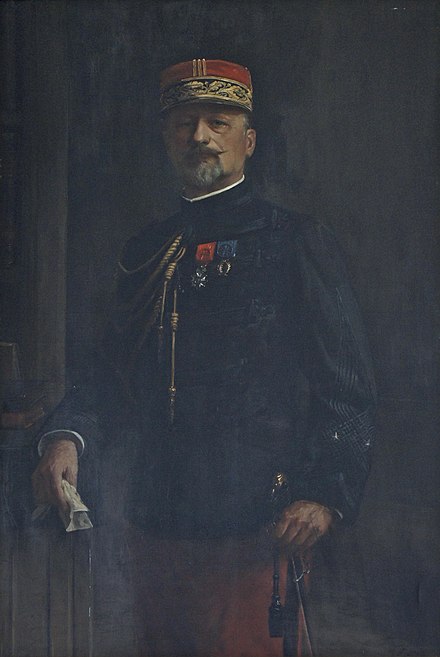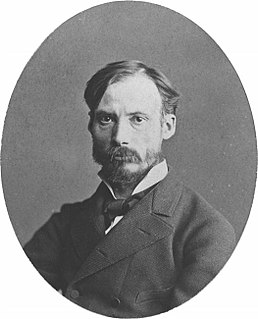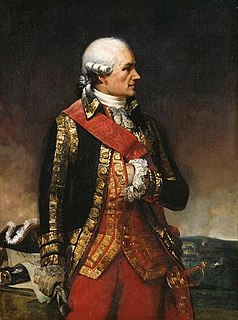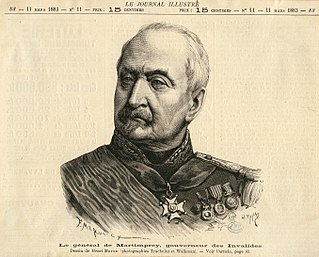
Jean Auguste Berthaut (29 March 1817 – 24 December 1881) was a French soldier and politician.
He graduated from Saint Cyr in 1837. He was promoted to Brigadier general July 1870.
The École spéciale militaire de Saint-Cyr is the foremost French military academy – often referred to as Saint-Cyr – located in Coëtquidan in Guer, Morbihan, Brittany, along with the École militaire interarmes. Its motto is Ils s'instruisent pour vaincre, literally meaning "They study to vanquish" or, more freely put, "Training for victory". French cadet officers are called saint-cyriens or cyrards.
Brigadier general or Brigade general is a senior rank in the armed forces. It is the lowest ranking general officer in some countries, usually sitting between the ranks of colonel and major general. When appointed to a field command, a brigadier general is typically in command of a brigade consisting of around 4,000 troops. In some countries a brigadier general is informally designated as a one-star general (OF-6).
He commanded the National Guard in Paris in 1870. He fought at the Battle of Le Bourget, Champagny, and Battle of Buzenval. He was appointed Minister of War, in the government of Jules Dufaure. He was appointed commander of the eighteenth army corps. He was a grand officer of the Legion of Honor. [1] [2]
The Battle of Le Bourget was part of the siege of Paris during the Franco-Prussian War, fought between 27 and 30 October 1870.

Champigny-sur-Marne is a commune in the southeastern suburbs of Paris, France. It is located 12.5 km (7.8 mi) from the centre of Paris.
The (Second) Battle of Buzenval, also known as the Battle of Mont Valérien, was part of the siege of Paris during the Franco-Prussian War. On 19 January 1871, the day after Wilhelm I was proclaimed German Emperor, Louis Jules Trochu attacked the Germans west of Paris in Buzenval Park. The attackers seized the town of Saint-Cloud, coming close to the new Emperor's headquarters at Versailles. Trochu was able to maintain his position at St. Cloud for most of the day, but the failure of other French forces to hold their positions left him isolated and the Crown Prince's army was able to force Trochu's salient back into Paris by the next day. This was the last effort to break out of Paris. Trochu turned over command of the Paris defenses to Joseph Vinoy who surrendered the city 10 days later.








